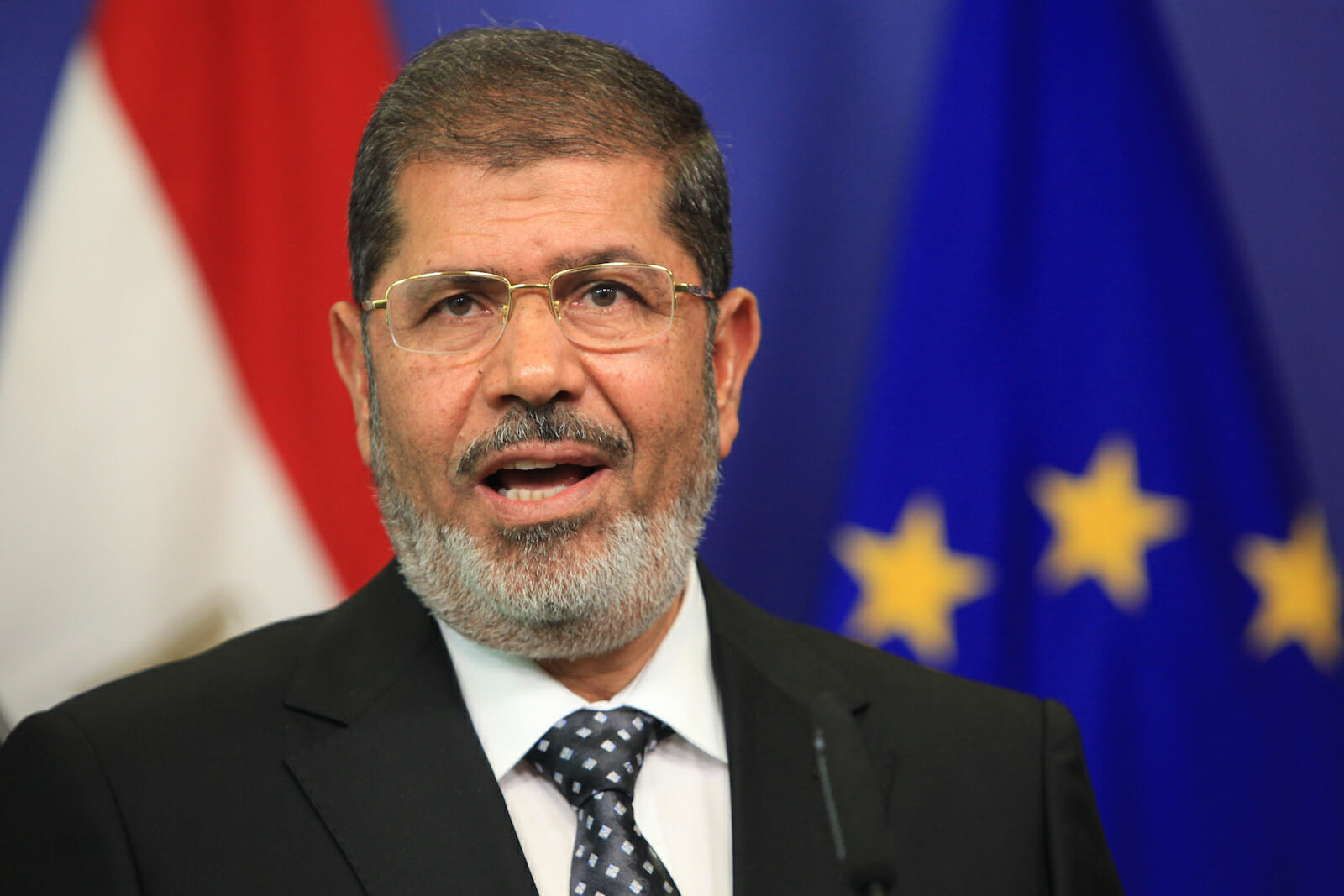
The Talented Mr. Morsi
Egypt’s new president, Mohamed Morsi, must be feeling rather pleased with himself. Having been instrumental in bringing Hamas and Israel to the bargaining table, he has now issued several decrees that he believes will determine the shape of Egypt’s constitution. Intended to safeguard the country’s ‘revolutionary’ future, two of the decrees provide a good indication of what may be expected from Mr. Morsi and his allies going forward – the Islamist Shura Council (the upper house of Egypt’s parliament) cannot be dissolved by any authority, and none of the decisions he has made since being elected, or until a new constitution and parliament are in place, may be reversed.
Egypt’s new ‘democracy’ is looking increasingly like the dictatorship it was supposed to have replaced, with Mr. Morsi holding unrivaled executive and legislative power. Opposition leader Mohammed El Baradei has rightly accused Mr. Morsi of behaving like a ‘new pharaoh.’
The millions of Egyptians who not so long ago held out hope for a genuinely new beginning are undoubtedly wondering how the democracy movement they waited so long for and fought so hard for could have been so easily hijacked.
In spite of the role Mr. Morsi appears to have had in getting Hamas to agree to a cease-fire (however temporary it may prove to be), it is important to remember that his government continues to promote the flow of arms along Egypt’s border into Gaza, and has warmly received the embrace of Iran’s Ahmadi-Nejad. It is easier to envision him as a trouble maker than a peacemaker.
The picture that is emerging in Egypt should be ringing alarm bells throughout the Middle East and North Africa, and give the West pause as it moves forward in arming the Syrian rebels. At this juncture, with liberal members of Egypt’s constitutional assembly having withdrawn in protest, and with Mr. Morsi’s allies pushing an Islamist legislative agenda, what is likely to emerge is a country more closely resembling Iran than Turkey.
Can there be any doubt – given how things have turned out in all three of the North African countries ‘liberated’ by the Arab ‘Awakening’ – what lies ahead in Syria? The west appears to have fallen into a trap, believing that ‘anything but Assad’ will be better than Syria with Assad, knowing that what is likely to replace him is sure to be more Islamist in orientation than his government ever was. Has anyone among the governments allied against Mr. Assad considered that? Is there an exit plan? What happens when the arms inevitably flow to the least desirable among the rebels – Al Qaeda and Islamic Jihad?
In Egypt, the Muslim Brotherhood has now abandoned any pretext of moderation, although some believed, prior to its assumption of power, that this was possible. The country that was America’s closest ally in the Arab world for decades is quickly becoming an epicenter of Islamic extremism. If Mr. Morsi and his allies have their way – and they will – women and minorities will be marginalized, personal liberties greatly threatened, and the worst elements of Egypt’s new political landscape will be calling the shots. Soon enough, Mr. Morsi will no longer be able to masquerade as a peacemaker, and the world will realize the true extent of the transformation that has occurred in Egypt. Will Syria be next?

